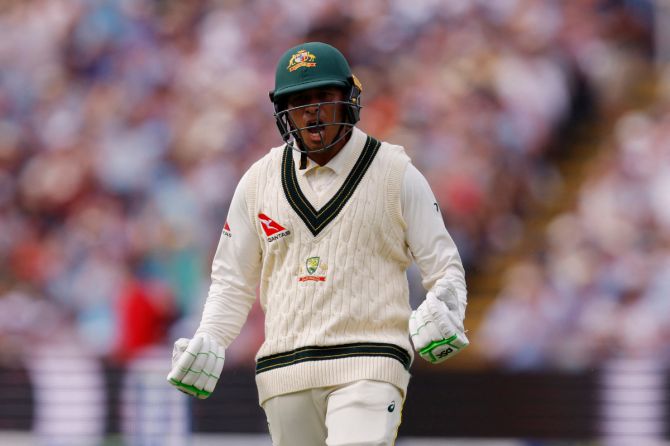
Australia opener Usman Khawaja said on Monday he had approached the International Cricket Council (ICC) about reducing penalties for slow over-rates in Test matches after the governing body announced earlier this month it had decided to soften sanctions.
Khawaja said it was "really frustrating" for players to lose their match fees despite delivering entertaining matches and that he had reached out to ICC General Manager Wasim Khan to seek a solution.
The governing body said at its annual general meeting that it was reducing the penalty to 5% from 20% for every over a player's team is found to be behind.
Australia and India were hit with heavy penalties for slow over-rates in the World Test Championship final, while the Australians were also punished for their rate in the first two Ashes Tests against England.
Khawaja, speaking ahead of the fourth Ashes Test beginning at Old Trafford on Wednesday, said as an Australian Cricketers' Association board member he wanted to find a way to speak to the ICC about the issue.
"We had played three games and they'd been three really good games with results, entertainment, the WTC (final) was the highest-watched test match ever or something like that," he added.
"Just really good stuff – and we were getting fined 80% of our match fee. It's a lot of money."
India's players were fined 100% of their match fees after they were found to be five overs behind in the WTC final, while Australia were docked 80% for lagging four overs behind.
"Just really frustrating as a player," said Khawaja. "You are giving it your all out there, providing entertainment, then you are getting stung for it. Just felt like I needed to speak and Wasim was really good."
Sourav Ganguly, chair of the ICC's cricket committee, said after the meeting last week that while teams would still be deducted WTC points for slow over-rates players would no longer lose their entire match fees.
"We believe this provides a balance between maintaining over-rates and ensuring we are not deterring players from playing Test cricket," he added.













 © 2025
© 2025